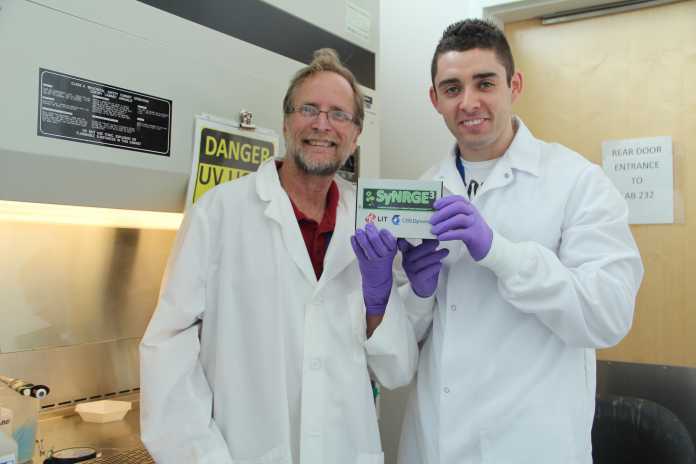

by Kathy Masterson
LIMERICK Institute of Technology created Irish space history this week as an experiment that could help grow crops in extreme conditions was loaded on to the International Space Station.
The project, which was chosen along with eight other international winners from a global research competition, will explore over the next 28 days how the clover-like payload reacts in space and whether or not it can be used as a natural fertilizer for crops there.

- External Walls: Up to €8,000 Grant
- Attic: Up to €1,500 Grant
- Cavity Walls: Up to €1,700 Grant
- Internal Dry Lining: Up to €4,500 Grant
This is the first time an Irish institution has been a leader and principal investigator in an experiment to the International Space Station.
The LIT research is led by Professor Gary Stutte,who for the past three years has been on secondment as a Marie Curie Research Fellow to the Controlled Environment Laboratory for Life Science (CELLS) at the Institute.
If proven in space, the application may also be replicated on earth, potentially leading to a major breakthrough for sustainable farming of crops in harsh environments, and reducing the use of synthetic fertilizers on earth.
Additionally, the research could lead to crops such as peas, radishes and lettuces, being grown in space.
This could assist dietary requirements for astronauts in long-duration missions, delivering a more balanced menu than the current freeze-dried foods option.
A panel of independent judges based at Space Florida – the State’s spaceport authority and aerospace economic development organisation – chose the LIT project among only a handful of other shortlisted universities such as Stanford and Florida IT.
After a number of postponements, the mission, which is sponsored by Space Florida and Nanoracks, finally got lift-off from the Kennedy Space Centre, Florida on Sunday.
“We are very optimistic about this experiment as it will tell us much about the operating limits of the biological process, which could lead to extremely valuable applications both in space and back here on earth,” said Professor Stutte.
“This is new frontier research at its best as it is essentially trying to explore ways of assisting humankind. We could be advancing the building of space farms of the future arising from this research,” he added.
Joining Professor Stutte at the Kennedy Space Centre was LIT postgraduate Adam Shinners, who is researching the effect of microgravity on the production of chemicals that may prevent the loss of bone and muscle mass in space.
He said: “This was an amazing opportunity. I gained some real perspective on working in space, perspective I could not have gained anywhere else. Being involved in a project that has just flown to the International Space Station is more than I ever dreamed of when I started at LIT. I still can’t believe it. It’s unbelievably exciting.”

